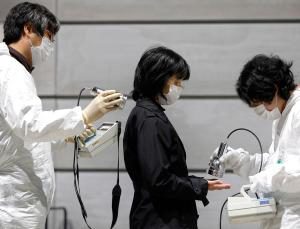Scientists have developed a new drug candidate, DBIBB, that drastically reduces the death rate in irradiated mice even days after exposure. Led by Gábor Tigyi of the University of Tennessee Health Science Center, the team based the drug off of lysophosphatidic acid (LPA), “a naturally occurring signalling molecule that seems to give cells a better chance against radiation exposure.”
In the study, mice were exposed to 8.5 grays (Gy) of radiation—roughly 2 to 3 times of a potentially lethal dose to humans. Of the untreated mice, 12 of 15 died a month later, whereas of the mice given DBIBB 72 hours after exposure, 14 of 15 survived. Most other radiation therapies in development must be administered within 24 hours of exposure. While DBIBB allows for slightly delayed treatment, this highlights the need for early detection and treatment in radiation poisoning.

